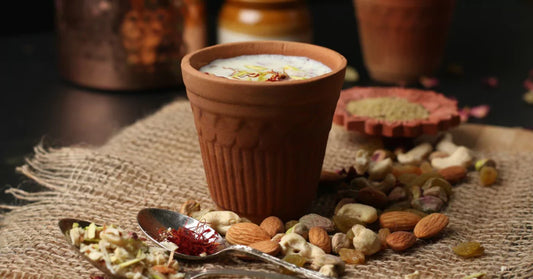If you have diabetes, you might think that sweet treats like dry fruits are off-limits. But the good news is that many dry fruits can be a healthy part of your diet when eaten in moderation. In this blog post, we'll explore the best dry fruits for diabetic patients, their benefits, and how to include them in your meal plan.
Understanding Diabetes and Diet
Before we dive into specific dry fruits, let's quickly review why diet is so important for people with diabetes. Diabetes is a condition where your body has trouble managing blood sugar levels. What you eat directly affects your blood sugar, so choosing the right foods is crucial for keeping your diabetes under control.
When it comes to dry fruits, it's important to consider their glycemic index (GI) and glycemic load (GL). The GI measures how quickly a food can raise your blood sugar, while the GL takes into account both the GI and the serving size. For diabetics, foods with lower GI and GL are generally better choices.
Best Dry Fruits for Diabetic Patients
Almonds
Almonds are an excellent choice for diabetics. They're low in carbohydrates and high in healthy fats, protein, and fiber.
Benefits:
- Help control blood sugar levels
- Improve heart health
- Provide vitamin E, an antioxidant
- Aid in weight management
How to eat: Enjoy a small handful (about 15 almonds) as a snack, or add sliced almonds to your oatmeal or salad.
Tips for Including Dry Fruits in a Diabetic Diet
- Watch your portion sizes
- Pair with protein or fiber
- Choose unsweetened varieties
- Consider timing
- Monitor your blood sugar
- Consult your healthcare provider
Benefits of Including Dry Fruits in a Diabetic Diet
When consumed in moderation and as part of a balanced diet, dry fruits can offer several benefits for people with diabetes:
- Nutrient density
- Heart health
- Blood sugar management
- Weight management
- Convenience
- Versatility
- Antioxidant properties
- Improved digestion
Precautions and Considerations
While dry fruits can be part of a healthy diet for diabetics, there are some important points to keep in mind:
- Calorie density
- Sugar content
- Carbohydrate counting
- Sulfites
- Dental health
- Individual responses
Conclusion
Dry fruits can be a nutritious and tasty part of a diabetic diet when consumed in moderation. Nuts like almonds, walnuts, and pistachios are excellent choices due to their low sugar content and beneficial nutrients. Dried fruits such as apricots, prunes, and dates can also be included in small amounts, providing fiber and essential vitamins and minerals.
Remember, the key to managing diabetes through diet is balance and moderation. While dry fruits offer many health benefits, they should be part of a varied diet that includes plenty of vegetables, lean proteins, and whole grains.
Always monitor your blood sugar levels and pay attention to how different foods affect you personally. And most importantly, work closely with your healthcare provider or a registered dietitian to create a meal plan that's tailored to your individual needs and preferences.
By making informed choices and enjoying a variety of foods in the right portions, you can maintain good health while still savoring the natural sweetness and nutrition that dry fruits have to offer.












